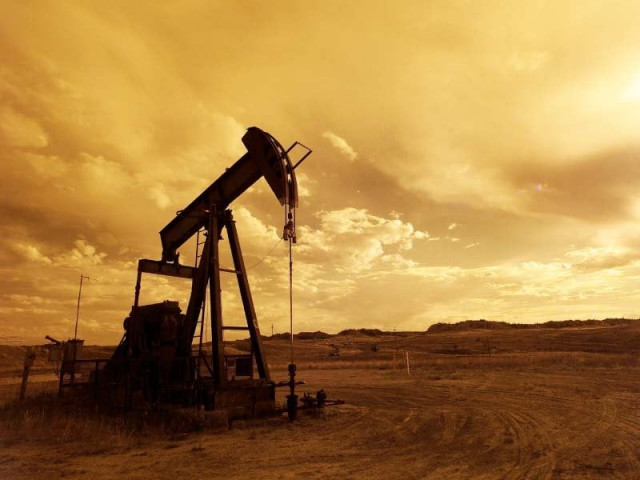ECC eases rule for oil imports to keep power plants running
Also approves tariff for 427km oil pipeline from Punjab to Khyber-Pakhtunkhwa

In December, the premier had banned the import of furnace oil with immediate effect. However, subsequently, the Power Division said furnace oil stocks were at critical level and there was an urgent need to make imports. PHOTO: FILE
The emergency situation arose due to an earlier abrupt decision of the prime minister to immediately stop the import of expensive furnace oil in December.
However, the Economic Coordination Committee (ECC) of the cabinet allowed PSO to import 420,000 tons of furnace oil through gallop tenders while exempting the state-owned enterprise from the Public Procurement Regulatory Authority (PPRA) Rules 2004.
Supply, terminal business: Govt plans to merge two LNG companies
The prime minister chaired the ECC meeting, which also approved the tariff for a 427km oil pipeline to be built from Punjab to Khyber-Pakhtunkhwa.
The decision to relax the condition of competitive bidding has been made to keep adequate fuel stocks in coming months, according to a statement issued by the PM’s Office.
In December, the premier had banned the import of furnace oil with immediate effect. However, subsequently, the Power Division said furnace oil stocks were at critical level and there was an urgent need to make imports to bridge the gap between demand and supply.
The Power Division estimated the furnace oil requirement at 18,000 tons per day from April to September 2018. Accordingly, PSO floated a tender for oil supply on April 5.
The Power Division took the plea before the ECC that due to the PPRA rules, the first cargo would arrive in the first week of June.
In order to meet immediate demand and avoid any untoward situation during summer, PSO opted for the gallop tender for the supply of 420,000 tons in six cargoes. The tender will be opened on Wednesday and delivery will start from May 25. The furnace oil stock stood at 335,000 tons as of Monday.
The summer season is coinciding with the upcoming general elections and continued power supply will be critical to woo voters.
The ECC also approved transportation tariff for the 427km Machike-Taru Jabba oil pipeline project.
It gave the go-ahead to the tariff, determined through bidding and cost of Right of Way and ISGS margins.
For the first section from Machike-Chakpirana (135 km), the ECC approved a total tariff of Rs940.6 per ton.
For section two from Chakpirana to Rawat (117 km), it approved a tariff of Rs950 per ton and for section three from Rawat to Taru Jabba (175 km), the tariff was set at Rs1,387.6 per ton.
The tariff will be ratified by the Oil and Gas Regulatory Authority after due process. The project will ensure environment-friendly and safe movement of fuel.
The project will also provide additional fuel storage capacity and enable supply to major distribution centres in central and northern Punjab and Khyber-Pakhtunkhwa.
The ECC agreed that all future pipeline projects would require prior approval of the cabinet.
In November, the ECC had authorised Inter State Gas Systems (ISGS) to execute the oil pipeline project on build, own, operate and transfer basis for 15 years through an open tender in three phases.
The ECC also directed ISGS to conduct a techno-economic feasibility study before the award of the contract.
The consultant has declared the project financially viable which will substantially reduce transport cost with oil flow through the pipeline instead of road cargo. The project will also help in checking adulteration in petroleum products besides reducing losses.
Gas supply to improve in twin cities with new pipe
A facilitation agreement between ISGS and the government of Pakistan for the implementation of the oil pipeline project has already been finalised and cleared by the Ministry of Finance.
The project will be capable of transporting two petroleum products - high-speed diesel and motor spirit - from Machike to Taru Jabba via Chakpirana and Sihala depots, completing the pipeline backbone from Karachi to Peshawar.
In order to ensure stable and reliable power supply through the national grid and to enhance the National Transmission and Despatch Company’s (NTDC) capacity, the ECC accorded approval to the issuance of government’s sovereign guarantee for a financing facility of Rs9.8 billion from local banks for NTDC projects.
Published in The Express Tribune, April 18th, 2018.
Like Business on Facebook, follow @TribuneBiz on Twitter to stay informed and join in the conversation.



















COMMENTS
Comments are moderated and generally will be posted if they are on-topic and not abusive.
For more information, please see our Comments FAQ